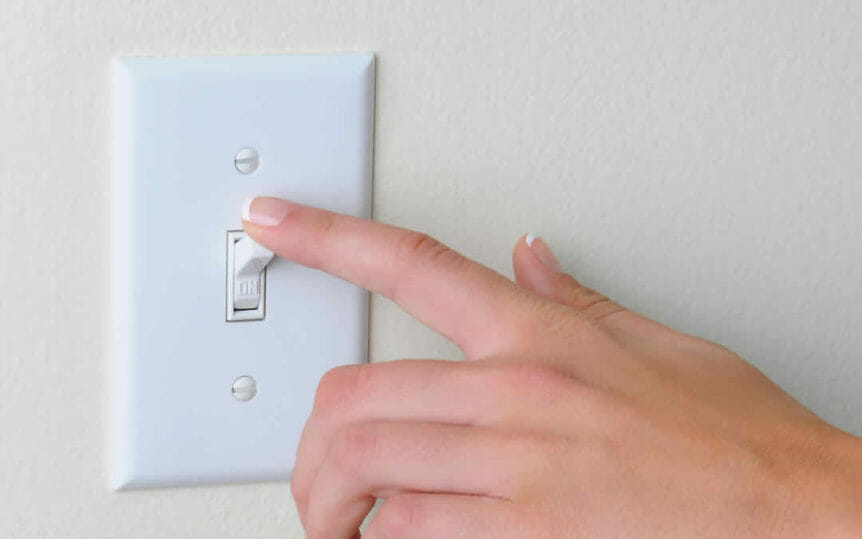
Continual Electrical Maintenance Will Prevent a Sudden Shock
Have you ever turned on a light switch and felt a tiny jolt of electricity? Or maybe you stepped into the shower this morning but instead of feeling the water, you got shocked. Either way, this should not happen and is a warning sign that something is seriously wrong in your home.
While the places you get shocked around your home may vary, the reasoning behind it is usually the same- improper grounding. In basic terms, electricity flows from the earth to the ground and will travel through materials like metal and water to get there. But if something is wrong with your electrical system, that flow of electricity will end up using you as a conductor and can cause serious damage.
“The biggest thing that causes people to continue to get shocked in their home is because of improper grounding,” said John Moore Services Electrical Manager David Floyd. “Many “Do-It-Yourselfers” try to fix their wiring problems without consulting a professional electrician and create a bigger problem than they started with. I had a customer who was trying to replace a switch in his home. He was taking the hot wire and putting it on the ground terminal, which is something you should never do because doing so will energize the whole terminal. Needless to say, he never finished the job because he was getting shocked repeatedly.”
According to Floyd, any metal conduit that is coming into your home needs to be grounded. For us non-electrician folks, a conduit is a tubing system that protects electrical wires as they go throughout your home. Most conduits are made of metal and should be grounded. Grounding is important because if there is an issue with the wires, the breaker will trip and cause the flow of electricity to stop. If they are not grounded or are grounded to multiple terminals, the flow of electricity will continue and shock whoever is in the way.
Here are the most common places in the home where people get shocked:
- Pool equipment: For safety reasons all pool equipment must be GFCI protected. GFCI stands for Ground Fault Circuit Interrupter and was designed to protect people from electrical shock. Because water is a great conductor for electricity, it is important that all pool equipment is grounded and up to code. If not, it creates an extremely dangerous situation.
- Old appliances: Older devices like toasters, microwaves, and hair dryers are often a source of shock because over time they begin to break down and their wires start to split open. Turning on an appliance with open points will lead to electrical shock.
- Shower/faucets: If your home is not properly grounded you will feel it when you turn on a faucet or step into the shower. The metal that your faucet and shower is made of will become “hot” the longer your home goes without being properly grounded. And when you add water to that situation, you are creating the ideal scenario for an electrical current.
- Excessive use on outlets: We have all seen an outlet that has 10 items plugged into it. This is extremely dangerous. The more devices you have plugged into an outlet, the more heat you are creating. This is not only a fire hazard but also has the ability to shock you as you turn on any one of those devices.
“Poor workmanship is the main reason for people getting shocked in their home,” said Floyd. “Electrical work is very technical and in order to do it safely and correctly you have to go through a lot of training. Going online and researching how to rewire your home or install an outlet doesn’t make you an expert and you could create a dangerous situation for anyone in the home, and you most definitely could end up getting shocked.”
So — leave electrical work to the professionals! Sure, we can all handle a small shock every now and then, but with faulty electrical work you never know how severe the shock will be. And that creates a dangerous situation for us all. If you are experiencing a jolt when you flip on a switch, call the professionals at John Moore Services to come check it out because we all know it’s better to be safe than sorry.
